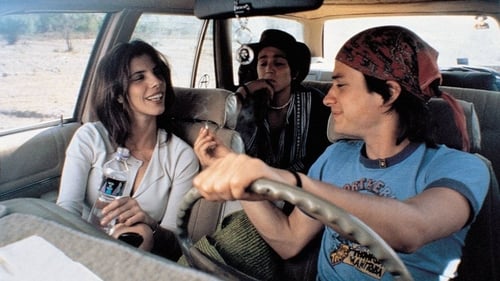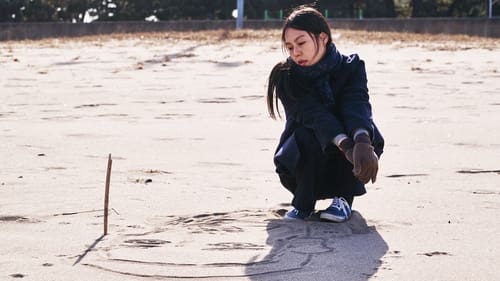Transparent, I am. (2021)
Gênero : Documentário
Runtime : 12M
Director : Yuri Muraoka
Sinopse
In the year 2020, when the world was forced to ‘change’, I wanted to confirm what changed and what did not change in me. The white mask I wore became the screen projecting my past. My family is sometimes hurt, but support me as I suffer from schizophrenia. We live today while looking for the answer to ‘Who are we?’

Tenoch e Julio são dois adolescentes de 17 anos que são controlados pelos seus hormônios e desejam se tornar adultos rapidamente. Em uma tarde festiva eles encontram Luisa, uma garota espanhola 11 anos mais velha que eles e que é casada com o primo de Tenoch. Eles a convidam para uma viagem à praia de Boca del Cielo, convite este inicialmente recusado e posteriormente aceito, após Luisa receber uma desagradável notícia. Porém, tanto Julio quanto Tenoch não conhecem o caminho até a praia e nem mesmo se ela realmente existe, fazendo com que os três se aventurem em uma viagem onde inocência, sexualidade e amizade irão colidir.

Riqueza, poder e festas ou o aconchego da vida familiar? Para Brad (Ben Stiller) a vida dos amigos parece muito melhor que a sua. Seja nas redes sociais, na tv ou nas revistas todos parecem estar muito melhor que ele. Ele errou nas escolhas? Por que a grama dos amigos é sempre mais verde?

In a violent city where a man succumbs to the loneliness and delirium of his unfulfilled desires. He wishes to belong somewhere. And the only way to achieve this goal is projecting in his own mind another version of himself, a "second man", someone -who will be accepted.

Younghee é uma atriz famosa que tem a sua vida pessoal exposta após um caso com um homem casado. Ela acaba então decidindo deixar sua cidade e passar um tempo em Hamburgo, na Alemanha, e dar uma pausa na carreira. E, ao retornar à Coreia, Younghee reencontra os velhos amigos e começa a refletir sobre suas possibilidades de futuro. Em noites regadas a álcool, ela se libera e diz o que realmente sente, gerando conflitos bem complexos com eles.

Meadows the butler quits after being tormented by the spoiled family cat, who finds he is unable to survive on his own, especially after meeting the mice Hubie and Bertie.

A thief gang flees from the police and catches a night train with To, an unlucky guy who is now their hostage. There are many wealthy passengers in the train, so the thieves take advantage to rob the passengers. Oddly, when the thieves rush into the bogie, all they could see is just empty seats. Then, To is accused to be the one who told the passengers to escape from the train before they could begin to rob. Now, To has to run away before the thieves kill him. Luckily, there's a pretty girl named Rahtree comes to save him in time, and tells him the horrible story of the train. There's something mysterious about the train and the passengers that To has to confront.


Yoshito grew up with his mother Yasue after his father passed away. His mother ran a yakiniku (grilled meat) restaurant that his father had left behind. Yoshito enjoyed eating his mother's cooking and their restaurant was loved by many people. Things changed after popular food critic Furuyama Tatsuya published false statements about their yakiniku restaurant. Due to that, their restaurant saw a sharp drop in customers. Yasue worked hard to recover business for the restaurant. Due to Yoshito's behavior in wanting attention from his mom, Yasue decided to shut down the restaurant. 18 years later, Yoshito lives alone and he works as a freelance writer. One day, he takes work for a new online foodie website. He works with editor Takenaka Shizuka. Their first assignment involves yakiniku. Around that time, Yoshito hears that his estranged mother Yasue has collapsed.

Indulging in frivolous passions and contemplating the essence of being, a young woman reflects her feelings that seem to be doomed and rejuvenating at the same time.

After consolidating itself as a tourist destination in the mid-1960s, this small coastal village has become the dormitory town for the workers of a Nuclear Power Plant. With the liberal promise of prosperity and socioeconomic wellfare, many workers left their homes to move to the small city and started working at the new Nuclear Power Plant. The collective unrest and the silence, cut off by the great gusts of wind, articulate the landscape of the village that is now under the aid of the Nuclear Power Plant.

An experimental look at the origin of the death myth of the Chinookan people in the Pacific Northwest, following two people as they navigate their own relationships to the spirit world and a place in between life and death.

An experimental documentary/poetry hybrid where the subject (Michael Ehms) reflects on his current life, his insecurities, and himself.

An Indonesian student in London attempts to deal with the absurdity of confinement and immobility due to then-ongoing coronavirus lockdown by talking to his parents – who also face similar movement restrictions in Jakarta – over the phone.

An experimental attempt that examines the four corners of the inner zoned quarantine world to question a person.

Using home movies, vintage memorabilia, and the straight facts about Saskatchewan, the filmmaker creates an eccentric portrait of the first year of his life, and the province that shaped his identity.

Left for dead on an abandoned earth, a struggling man must accept his situation and reconcile with his unsettling past.

What are they? What do they seek? When all the lights go out, they will wander. And you will never see them.

The Enigma of Hedonism are profile documentaries that tell the life of Heri Dono. His attitude and view as an artist that transcends canvas and time has had an important impact on artists and artists in other fields in their work. Not only that, his exploration of the various and types of working mediums and the experience of participating in various prestigious exhibitions in the world has made him dubbed as the greatest artist of Indonesia today.

After May 1968, they experimented with communities, squats or free love, with the hope of real change. Today, at retirement age, they live in new places and promote ways of living better and growing old together. What if they were right, these former protesters whose utopias have been muted by triumphant individualism?

Bizarría, a short film about the reality in which we live in a utopian way, as a feeling and desire for the improvement and perfection of life, knowing that even with the ups and downs it has, it is wonderful and pleasant, and that if it were not for these moments we would never realize how good it feels to be alive and all that experiences leave us.

















